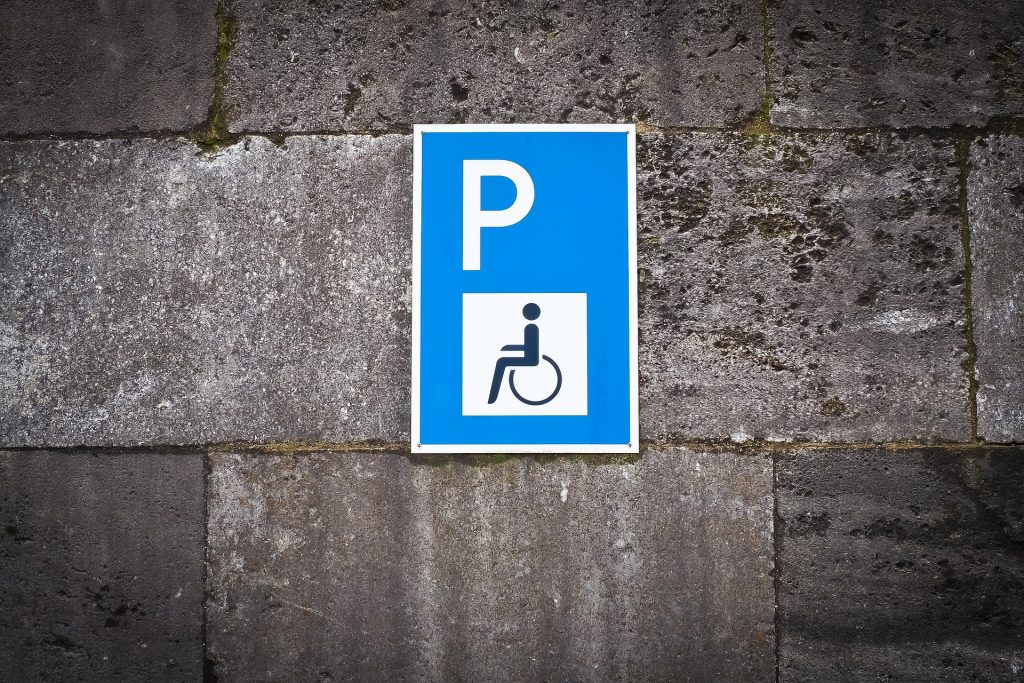Pavement parking is leading to thousands of people feeling “so afraid that they do not leave their home”, according to the MPs calling for the practice to be banned across England.
Parliament’s Transport Select Committee released a report on Monday (9 September) accusing the government of “failing to take action on pavement parking”, which they argue is blighting communities and leading to social isolation.
The cross-party group is calling for the government to ban the practice outright in England, a move which prompted a divided reaction on Twitter and some consider heavy-handed.
But the proposal has gained the backing of numerous charities, including Inclusion London, Transport for All (TfA), Guide Dogs, and walking charity Living Streets.
The committee spoke to people with visual and mobility issues, as well as parents and carers who are disadvantaged when forced to push buggies along the road in order to get around awkwardly parked vehicles.
Around 4,000 who responded to a survey conducted by Living Streets highlighted social isolation as one of the impacts of pavement parking, according to the report.
“This is a thorny problem that may be difficult to resolve to the satisfaction of all,” said Labour MP Lilian Greenwood, the group’s chairwoman. “But the government’s inaction has left communities blighted by unsightly and obstructive pavement parking and individuals afraid or unable to leave their homes or safely navigate the streets.”
Pavement Parking: ‘A Nuisance For Everyone’

Isaac Harvey, from east London, uses a wheelchair and welcomes the calls for stricter police enforcement against those who park on the pavement. Image Credit: Isaac Harvey.
East Londoner Isaac Harvey, 23, has limb/pelvic hypoplasia/aplasia syndrome. This means he has no arms, a weak pelvis, does most things with his feet, and uses a wheelchair to get around.
“For the longest time it has been very difficult as a wheelchair user getting past cars who park on the pavement,” he told EachOther.
He added that he sometimes has to go into the road in order to get around cars – which is not always easy depending on the nature of the kerb – and he sometimes accidentally scratches cars due to lack of space.
“In a nutshell, it is a nuisance for everybody,” he said.

Alan Benson is the chairman of disability charity Transport for All.
Alan Benson is the chairman of disability charity Transport for All and, as a wheelchair user, says he is also frequently affected by the issue.
“This isn’t just inconvenient for disabled people but can be highly dangerous,” he said. “You have to take your life in your hands and walk in the road amongst the traffic to get around the vehicle.
“This selfish act also frequently damages the pavement, leaving a lasting legacy of trip hazard and uncomfortable, uneven surfaces.”
What About Human Rights?
The 2010 Equality Act places an “equality duty” on all public bodies, including highway authorities, to eliminate discrimination, harassment, and other proscribed conduct towards people on the basis of “protected characteristics” – such as their age, disability or sexual orientation.
This requires them to make reasonable adjustments including changing practices, policies and procedures which have a discriminating effect.
Both local authorities and the national government can be seen to have a role to play in tackling the problems that make roads inaccessible for people with disabilities, pregnant mothers, and other groups.
What Can Be Done?

Image Credit: Pixabay.
Parking on the pavement is currently legal in England outside of London, although the Highway Code advises against it and driving on the pavement is outlawed. There has been a general ban on pavement parking in London since 1974. This can be suspended by Transport for London (TfL) or if the local authority issues an exemption for specific circumstances and a specific area.
The Scottish government has already banned pavement parking in its Transport (Scotland) Bill, and the Welsh government has set up a task force to look at the issue.
MPs have recommended the government take some of the following steps to tackle the issue:
- commit to tackling pavement parking as part of its Loneliness Strategy
- legislate for a nationwide ban on pavement parking across England, outside London
- fund and launch a national awareness campaign highlighting negative consequences of pavement parking
- bring forward proposals to reform the Traffic regulation order process— a means by which local authorities can crack down on pavement parking – to make it cheaper and easier to use
- consult on a new offence of obstructive pavement parking.
What Does The Department for Transport Say?
A Department for Transport spokeswoman said: “We are committed to ensuring that our roads work for everyone, but are aware that pavement parking can cause real problems for a variety of road users.
“This is why the department recently concluded a review to better understand the case for changing the law, and will be announcing our next steps over the coming months.”







